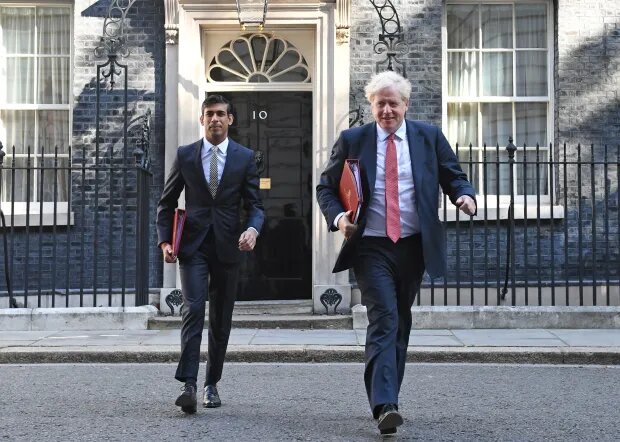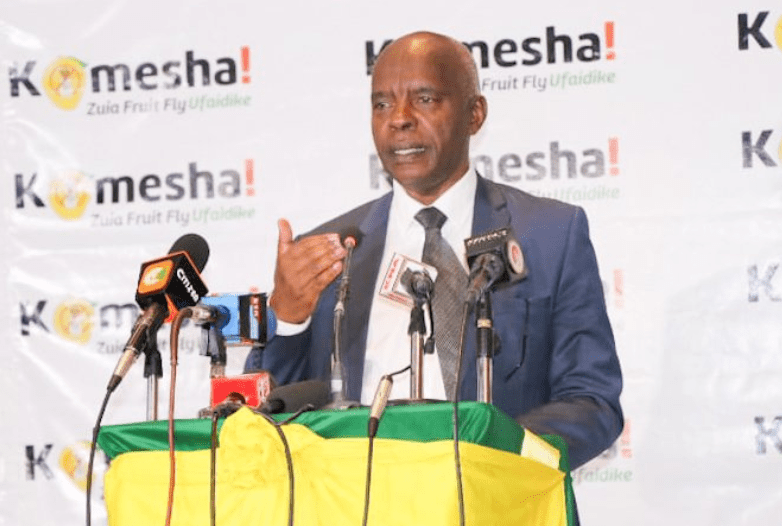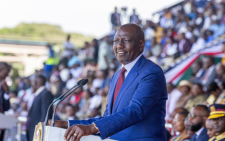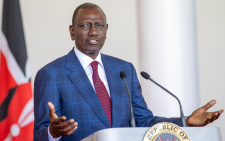UK’s Boris Johnson steps down, here’s what happens next & who could replace him
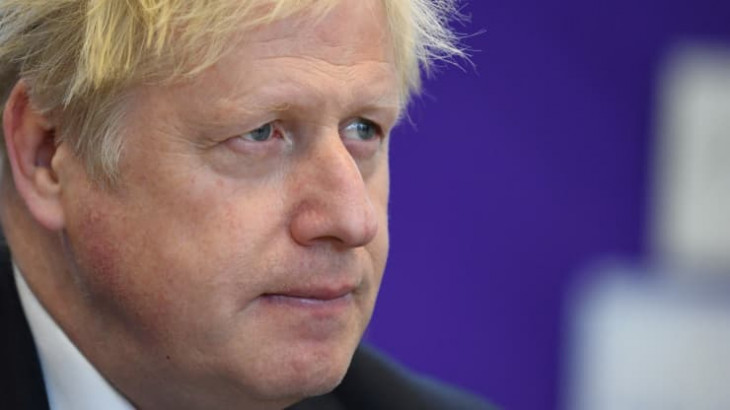
After an acute political meltdown in the U.K., Prime Minister Boris Johnson has resigned as leader of the Conservative Party, setting in motion a race for a new prime minister.
Johnson stood at a lectern outside No. 10 Downing Street at lunchtime Thursday and announced his resignation, stating that “no one in politics is remotely indispensable” and that he was “sad to be giving up the best job in the world.”
Crucially, Johnson said he would continue to serve as prime minister until a successor is chosen in a leadership contest set to take place over the coming weeks.
But given Johnson’s extraordinary fall from political grace, there is disquiet among some — both within his ruling Conservative party and beyond — over the prospect of Johnson remaining in office for any time at all.
Here’s what could happen next in this fast-moving political drama:
Leadership contest
Among those expressing concern over Johnson remaining caretaker prime minister until a new leader is selected is Business Secretary Kwasi Kwarteng. He said would rather Johnson goes now and urged the party to elect a new leader “as soon as practicable.
Meanwhile, another Tory MP tweeted that, “it is beyond credulity that Mr Johnson can stay in office.” Others have said an interim prime minister should be installed to look after government business over the summer, while parliament takes a break.
Unsurprisingly, the leader of the opposition Labour Party Keir Starmer has said that Johnson needs to go “completely” and that “there should be none of this nonsense about clinging on for a few months.”
If the Conservative Party does not support Johnson remaining in his post, it could recommend that the Queen appoint another Conservative lawmaker as a stopgap — with the current Deputy Prime Minister Dominic Raab likely to be a frontrunner.
Allan Monks, an economist at JP Morgan, said the Conservative leadership process was likely to be completed in a matter of weeks.
“The first round is likely to start imminently and will consist of a series of votes among the party’s MPs designed to whittle down the process to two candidates (taking two weeks or less). The second round will be a ballot among party members to decide who becomes the next leader (and hence Prime Minister). This could take a further four weeks or so,” Monks explained.
This implies the whole process could be completed by September — well before the Conservative Party’s annual conference.
Who could replace him?
All eyes are now on Johnson’s replacement, with speculation rife over which of the “big players” — such as current or former Cabinet ministers — will announce their intention to run.
Prominent Conservatives who are seen as potential contenders include former Chancellor Rishi Sunak, former Health Secretary Sajid Javid, Defence Minister Ben Wallace and current Foreign Secretary Liz Truss, as well as other less prominent officials including trade minister Penny Mordaunt and former health minister Jeremy Hunt.
None of them has yet declared their interest in running for the top job with the only attorney general, Suella Braverman, announcing definitively that she is running so far.
A snap YouGov poll which asked 716 Conservative party members who they’d like to replace Johnson found that Ben Wallace and Penny Mordaunt came out neck-and-neck, with 13% of those polled backing each of them respectively. Rishi Sunak was behind with 10% and Liz Truss with 8%.
Notably, however, a separate YouGov poll comparing the individual candidates showed that Wallace was the clear favourite among Conservative Party members to be the next party leader.
What impact on markets?
As the U.K.’s political future remains uncertain, the impact on the sterling and financial markets will be closely watched. Both sterling and the FTSE 100 gained on news that Johnson was set to resign.
“The next few months in U.K. politics are difficult to call,” Kallum Pickering, senior economist at Berenberg Bank said in a note Wednesday, saying that financial markets were likely to be rattled over the next few months and likely into the fall.
“If the fight to oust Johnson turns even messier, and it is followed by a noisy leadership contest, increased near-term uncertainty may add further downward pressure to UK risk markets and sterling. UK finance minister could signal an era of austerity, says Medley Global Advisors.
Looking past the populist Johnson, Pickering said both of the U.K.‘s major parties have mostly sensible economic policies — to the centre-left for Labour and centre-right for the Conservatives — reflecting the parties’ political leanings.
“Relative to, say, a potential Biden versus Trump presidential election in the U.S. in 2024, the next U.K. general election and the outlook for economic policy seem positively boring. After some six years of Brexit and Boris, that’s not a bad thing,” Pickering noted.
The backstory
The U.K. has been in full political meltdown mode this week with scores of officials quitting the government.
The avalanche of departures was sparked by the high-profile resignations of Chancellor Rishi Sunak and Health Minister Sajid Javid on Tuesday. Many officials publicly stated that they no longer had confidence in Johnson’s leadership and that for the sake of the party and the country he should — must — go.
Resignations among the Conservative Party — from ministers to top officials — kept on coming Thursday until over 50 men and women had quit their posts as the fast-moving political drama unfolded.
However, Johnson, a leader embroiled in controversy and facing a government collapse, had vehemently refused to step down, saying he had a “colossal mandate” to govern after a landslide election win in 2019.
His critics respond that in the years since that vote, the public has tired of allegations of misconduct — ranging from partying within government departments during Covid lockdowns to instances of sleaze — that have racked Johnson’s government and party over recent months.
